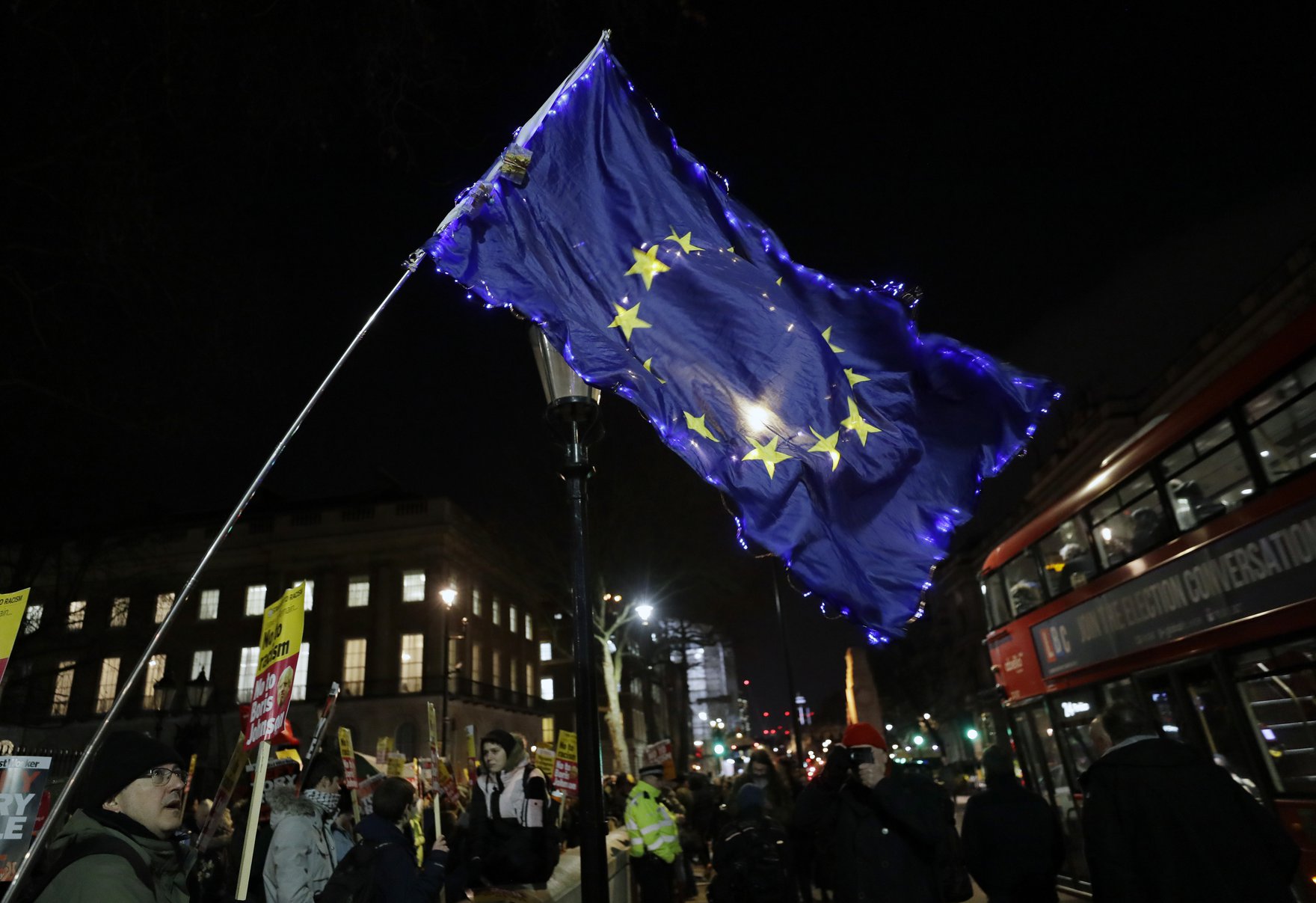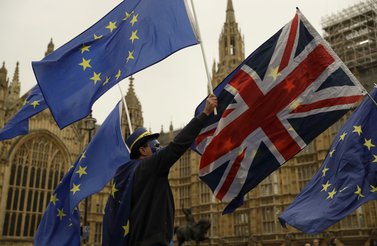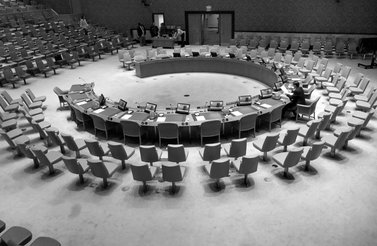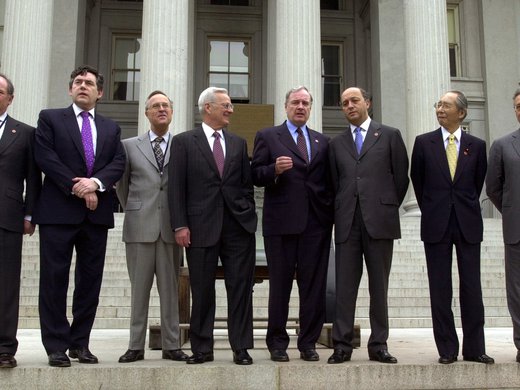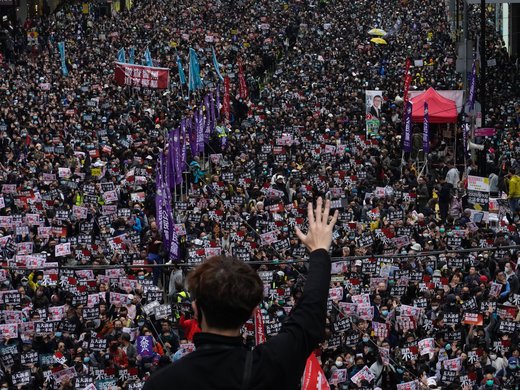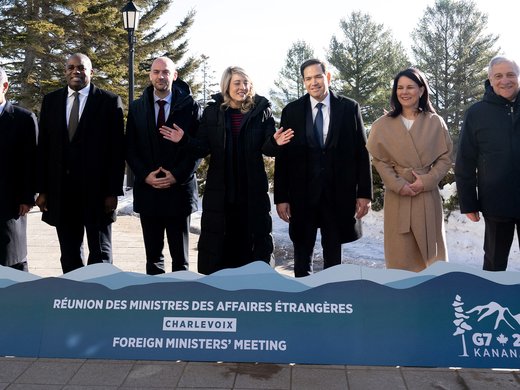January 20: Meng Wanzhou’s Extradition Hearing
Just around the corner is Meng Wanzhou's extradition hearing, set to begin on January 20. The deputy chairwoman and CFO of Chinese telecom giant Huawei was arrested at Vancouver airport in 2018, at the request of US authorities, on charges of fraud involving an alleged Huawei subsidiary contravening US sanctions on Iran.
On one level, this is a legal story, involving the United States’ extradition request, Canada's relevant treaty obligations, as well as issues surrounding the propriety of Meng's arrest by the Royal Canadian Mounted Police.
On another, perhaps more important, level, this is a political drama and a particularly personalized aspect of current US-China trade tensions. In the months leading up to Meng's arrest, the Trump administration declared it would be much more aggressive in dealing with what it called China's financial unlawfulness. And the US has been trying to bar Huawei from Western 5G networks. US president Donald Trump even appeared to confirm critics’ views that Meng is essentially a bargaining chip when he said he could tie Meng’s fate to a favourable trade deal with China.
It is a political drama with huge consequences, not only for Meng but also for both Michael Kovrig and Michael Spavor, the Canadian nationals arrested in China in what many have called retaliatory arrests, and for Canada as a whole. Along with the arrests of Kovrig and Spavor, China has put massive pressure on Canada to free Meng. Canadian producers of canola seeds, soybeans, pork, and beef have taken massive hits as China, a primary customer, dramatically decreased orders of these and other goods in the wake of Meng's arrest.
The first step in proceedings is to decide “dual criminality” — whether what the US is accusing her of is also a crime in Canada. If the court rules it is and that Meng should be extradited to the US, Canada's justice minister will have to make the final call, weighing not just the legal merits of the case, but the weight of potential American and Chinese reactions when one or the other doesn’t get the decision it wanted. Canada can only hope, as many have said publicly, that the US soon decides it doesn't really want to extradite Meng (or perhaps, that Meng could pull a Carlos Ghosn and somehow flee the country).
January 31: Brexit
With the landslide election victory for British Prime Minister Boris Johnson late last year, it is now certain that Brexit is a go. The United Kingdom is set to leave the European Union on January 31. However, that's where the certainty ends. With the Brexit saga moving past the will-it/won't-it — and then how-can-it-happen — phases of the last years, it is now entering the part of the story when we ask: what will happen when it finally does go through?
At the most profound level, the question is whether the UK will stay united, and, in Northern Ireland especially, peaceful.
At a more mundane level perhaps, but one no less impactful on people's everyday lives, the UK will now have to renegotiate all its trade deals. The uncertainty that envelops how Brexit will work is one reason renegotiating these deals will be difficult — no one quite knows how things will look, or what concessions British negotiators might soon be offering.
Canada will want a trade deal similar in terms to the one between Canada and the European Union, the Comprehensive Economic and Trade Agreement — which the Canadian government says may govern trade between the two countries until the end of 2020. Canada has opted for a wait-and-see approach however; the UK has not put a high priority on a trade deal with Canada, and neither is Canada pressing for a return to negotiations. (While the UK is the point country for Canadian exports to Europe, Canada is relatively much less important for British exports compared to the United States, European countries and China.) Still, the watchword from both sides has been "seamless," as in that's what both sides have said they want in terms of moving toward a new agreement. 2020 will be the judge of that aspiration.
April 27 – May 22: The Nuclear Non-proliferation Treaty Review Conference
This year will mark the fiftieth anniversary of the Nuclear Non-proliferation Treaty (NPT), which came into force in 1970. Every five years, signatories to the NPT gather under UN auspices for a review conference.
Several issues will confront the more than 190 parties to the treaty when they meet at the end of April and most of May for what one expert has called a "make or break" moment for nuclear non-proliferation. The nuclear deal brokered with Iran is nearly dead. North Korea's nuclear program is a going concern. The US and Russia have both withdrawn from the Intermediate-Range Nuclear Force Treaty, an agreement signed in 1987 that banned land-based medium-range nuclear missiles. And not only have China, France, Russia, the UK, and the US (the five nuclear weapon states party to the treaty) failed to make appreciable progress towards complete disarmament — something required by the terms of the treaty — these powers (and their various allies, which includes Canada) have resisted the development of the Treaty on the Prohibition of Nuclear Weapons, a treaty designed, its advocates say, to bolster the NPT's disarmament framework. The US has, for example, begun framing its approach to non-proliferation in terms of needing a more "realistic dialogue" about why countries possess nuclear weapons in the first place. Critics have argued this rhetorical shift serves merely to create space for framing US nuclear policy as “responding” to nuclear weapon programs in Russia, China, India, Pakistan, and North Korea.
At stake is nothing less than the commitment to the ethos undergirding the NPT — that the nuclear haves will allow the nuclear have-nots to develop peaceful applications of nuclear energy, but not nuclear weapons, and in exchange will themselves work towards complete nuclear disarmament. The outcome of the 2020 review conference will show just how close this ethos is to disintegration.
May 3: Bolivian Presidential Elections
Bolivians will choose a new president (and legislative deputies) on May 3, it was announced earlier this month. This will be the first election since a political crisis enveloped the country following the presidential election in October 2019, when allegations of electoral fraud and ensuing public protests, resulted in long-time president Evo Morales being ousted from power — he left at the "request" of the Bolivian army, quickly accepting asylum in Mexico and then Argentina. Opposition senator Jeanine Áñez declared herself interim president. Morales has since been barred by the Bolivian Congress from standing for (re)election in May and Bolivian authorities have issued a warrant for his arrest.
Morales’s party, the MAS (Movement for Socialism), which still commands significant support in the country, will contest the election and has said it will declare its presidential candidate sometime in January. Recent polls suggest that one potential MAS candidate, 29-year-old Andronico Rodriguez (who Morales himself suggested could assume the leadership of MAS) would beat all other so far declared presidential candidates.
At its simplest, the Bolivian election will determine whether the country continues along the leftist/socialist path of the Morales years, or joins the rise of right-wing governments in South America.
May and July: The Generation Equality Forum
2020 will be the twenty-fifth anniversary of the Beijing Declaration and Platform for Action, the UN resolution on gender equality adopted at the Fourth World Conference on Women, held in China in September, 1995.
To mark the occasion and review progress since 1995 — and, more importantly, articulate an updated, forward-looking agenda — UN Women will bring together civil society groups from around the world for the Generation Equality Forum, co-hosted by the Mexican and French governments, to be held May 7-8 in Mexico City and July 7-10 in Paris. The delegates will have the task of incorporating the principles articulated by the Beijing declaration with several more recent and related areas of awareness, including, for example, the consciousness-raising connected to the MeToo movement, the particular impact of climate change on women and girls, and the UN's Sustainable Development Goals (SDG), of which Goal Five calls for achieving gender equality and the empowerment of all women and girls by 2030.
June 10-12: The G7 Summit in the United States
In June, US president Donald Trump will host the leaders of the world's seven largest advanced economies — the Group of Seven, or G7 — at the presidential retreat Camp David for their forty-sixth summit. (The summit will not be held at the Trump-owned Doral resort in Florida as Trump had initially wanted. This prospect was forgone after it came under quick scrutiny for being possibly unconstitutional.)
In taking over the presidency of the G7 for 2020, the US administration has said it wants to limit the scope of communiqués and joint statements issued by the group — moves that would of course help paper over the fact that these meetings, which have historically articulated consensus statements, have grown much more contentious since Trump came to power. (Recall he abruptly left the 2018 G7 meeting in Charlevoix, Quebec, in a huff.) The US has also said it wants to limit the range of issues the multilateral organization deals with. One might presume this is code for Trump's pointed rejection of multilateral efforts to deal with climate change — had not the White House explicitly confirmed that the G7 would not be discussing climate change in 2020.
The other major issue is whether Russia will be (re)invited to the summit, and in what capacity. Russia was kicked out of the then-Group of Eight, following Russia’s annexation of Crimea. Trump has repeatedly said he supports Russia being reinstated without condition. Italy and Japan are reportedly keen on the idea, as is France, provided some compromise can be found with regards to Crimea. Canada is against Russia’s readmission.
June: Canada Bids for a UN Security Council Seat
Canada has not sat on the United Nations Security Council since 1999-2000. After the Harper government failed to win a seat on the 15-member Council in 2010 — the first time Canada had ever lost such a bid — Justin Trudeau’s Liberals pledged they would successfully win a place at the table in 2020. The vote will be held in June for a two-year term beginning in 2021. Canada is up against Ireland and Norway.
Contributions to foreign aid and peacekeeping missions are often seen as important to winning bid. So is schmoozing. The Harper government spent over $1 million visiting foreign capitals and charming diplomats during its failed campaign for a seat. Canada spent around $10 million for the 1998 bid, which was the last successful bid.
For those who see Canadian participation at the UN as a taken-for-granted foreign-policy imperative, winning a seat on the Security Council will be its own reward. But apart from a country's supposedly gaining esteem on the international stage, what are the benefits of winning a term on the council? At a basic level, Security Council members debate and vote on binding resolutions — the highest of the high international politics at the UN. It is, simply put, a seat at the UN's most important table, and, in a real sense, means belonging to a select club that makes the rules about war and peace.
But in some ways, the Canadian government sees the Security Council as something of a limited institution. Canada is part of a group of 12 countries that want to increase the number of seats on the council to 25 — but without increasing the number of permanent members or giving any new members veto powers. (The Security Council's five permanent members — China, France, Russia, the UK, and the US — can each veto any proposed Security Council resolution.) Canada's position is that the veto powers of the five permanent members have effectively hamstrung the institution from the beginning.
No matter how much it invests in a charm offensive, Canada may not get the votes it craves to win a seat — too many countries are against reforming the council in the way Canada has suggested. Several countries, including Brazil and India, have advocated extending both permanent member status and veto power to new middle powers (like Brazil and India) not accounted for in the Security Council's post-Second World War hierarchy. African countries have also lobbied for a veto to be granted to a rotating representative of that continent. In other words, Canada may be taking a long shot this year.
November 3: US Presidential Elections
Americans head to the polls on November 3 to elect their president. Presumably, US President Donald Trump will be standing for re-election. However, like so much of the conventional wisdom surrounding Trump's presidency — that he could never become the Republican nominee in 2016, that he could never win the presidential election, that he had obviously colluded with Russia — nothing should be considered certain.
Still, several questions will be answered by the time the election rolls around in November.
First: Will he still be in office? The trial by the Senate for the recently-impeached president has in fact just begun and could last several weeks. Senators will determine whether Trump is guilty of the high crimes and misdemeanors the House of Representatives charged him with in late 2019. Given the Senate is controlled by a Republican Party that seems entirely subordinated to Trump, it is considered a near certainty that Trump will be acquitted.
Second: Who will be the Democratic Party's nominee? Former Vice President Joe Biden leads almost all polls, and despite a lengthy list of contenders, it is now safe to say the leading group also includes Elizabeth Warren, Bernie Sanders, and perhaps also Michael Bloomberg and Pete Buttigieg. The Democratic Party is going through three processes at the same time: picking a nominee to challenge Trump, picking someone to lead the party, and defining what exactly the party is all about. Though happening simultaneously and in the same place, these processes have been often at odds with each other. While settling all these issues could strengthen the party over the medium-term, the party risks arriving to the November election as not much more than a divergent, disparate, fractious crowd, more or less ambivalently gathered around its nominee and (perhaps) leader.
Third: What might Trump do to win? Here, it must be said, given all that has gone before, all bets are off.
Lastly: Will Trump win? Many seem to think so. As has become well known, it is not necessarily the popular vote that produces wins. In the US, it is the electoral college, and here, the key states are Pennsylvania, Michigan, Wisconsin, Arizona, and Florida. In short, the winner of a combination of these states, and thus the presidency, will be determined by mere slivers of the electorate.
November: COP26 in Scotland
From November 9 to 20, the United Nations will hold its twenty-sixth Conference of the Parties (COP), the preeminent forum for debating and determining state action to combat climate change. This year's conference will be held in Glasgow, Scotland. Delegates will be faced with tackling issues that turned 2019's COP25 in Madrid, Spain, into something of a frustrating stalemate — particularly with regards to plans for an international carbon market and agreed-upon targets for cutting greenhouse gas emissions.
Given the populist rejection of climate change science — led by US president Donald Trump, Brazilian president Jair Bolsonaro, and others — and the increasingly urgent calls for climate action from global civil society actors (and along with the increasingly dire headlines connected to climate change), COP26 is bound to be less a forum for multilateral deal-making, and more of another showcase of one of the most significant global ideological divides of our time.
November: End of Canada’s Command of NATO Mission in Iraq
Canada's command of NATO Mission Iraq — a "non-combat, advisory and training mission" — will come to an end in November. Canada has led this mission, which involves about 250 Canadian Armed Forces members at any given time, since it began in 2018. (The CBC recently reported that there were around 500 Canadian military personnel in the country — some of which have been at least temporary moved to Kuwait.) The most obvious question, at the moment, is whether the mission will make it to November. It has recently been suspended following the targeted killing by the US of Iranian General Qassem Soleimani. In response to the killing, Iraqi members of parliament voted — for now, symbolically — to have foreign military personnel leave the country. NATO has since said the mission will "restart" if and when conditions permit.
This is just one of the uncertainties that has followed in the wake of Soleimani's death. Canada is now largely focused on seeking answers from Iran, following its admission that it downed the Ukrainian International Airlines flight, which killed all onboard including 57 Canadians. With tensions still high, the 2015 nuclear deal hanging on by a thread and uncertainty over the impact on regional stability, including ISIS’ activities, the future of the NATO mission is unclear.
November: The G20 Summit in Saudi Arabia
Saudi Arabia will host the fifteenth Group of Twenty (G20) summit, beginning November 21. In Riyadh, the gathering of the world's leading economies will have as its inevitable and unpredictable backdrop the geopolitics of the Middle East. But the real headline question will be what sort of legitimacy Saudi Arabia’s leadership of the G20 will confer on the kingdom's de facto ruler, Crown Prince Mohammed bin Salman.
On the one hand, MBS (as he is widely known) has positioned himself as a reformer, behind, for example, new laws that now permit women to drive, obtain passports to travel outside Saudi Arabia without permission of their (male) "guardians," and join the workforce in greater numbers. He has made it possible for foreign tourists to visit the country. And he is also leading the diversification of the Saudi economy away from its dependence on oil. In 2019, he oversaw the US$25.6 billion IPO of Saudi Aramco, the world's largest public offering to date. The offering put a market value of US$1.88 trillion on Saudi Aramco, making it the world's largest publicly traded company.
On the other hand, MBS has been condemned for increased repression of women's rights activists, a general crackdown on and the torture of human rights advocates and other dissidents, the brutal war in Yemen, and — most sensationally — the murder and dismemberment of Jamal Khashoggi, a Saudi journalist.
Agnes Callamard, the UN special rapporteur who led the UN inquiry into Khashoggi's killing, has condemned Saudi Arabia's hosting of the G20 summit and has said the meeting should be held elsewhere or else be boycotted.
Tellingly perhaps, Canada — one of the most vocal Western countries critical of the Saudi rulers — has no plans to miss the Riyadh summit. Despite an intense diplomatic falling out in 2018 over Canada's criticism of Saudi Arabia's treatment of women's right activists, the kingdom remains a major buyer of Canadian arms. Overall, it is expected the G20 will cap MBS's muted return to favour, continuing the trend that began soon after the initial fallout from Khashoggi's murder had passed.
This article originally appeared on OpenCanada.org.
